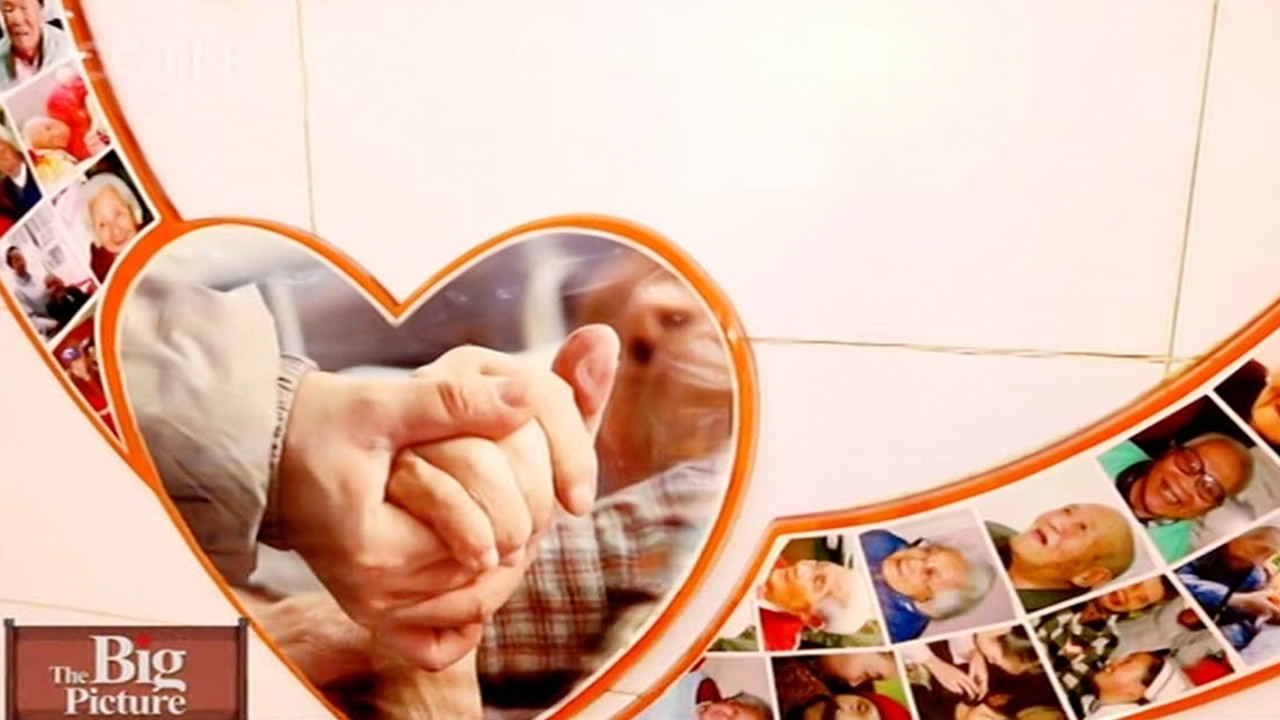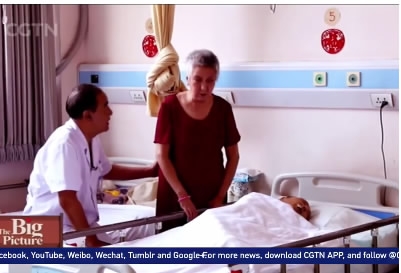
China
16:01, 06-Oct-2017
The Big Picture: China lags behind in hospice care
Wei Lynn Tang and Li Qiuyuan

It is said that in a human’s life, there are only a few wants, or blessings: Wealth, health and harmony, a long life, and finally – to die a peaceful death.
End of life is not something one often thinks – or wants to think - about until you’re approaching it yourself in your final days.
And admittedly, it is not easy to die a painless and peaceful death, no matter how young or old you are.
CGTN’s Li Qiuyuan finds out how China, the world’s most populous nation, with its increasingly aging population, is tackling this dire issue.
Social acceptance
Things may not seem that easy in China.
In a country where the old culture emphasizes the importance of filial piety, sending one’s aged parents to hospice is not something to be proud of. It is deemed the children’s responsibility to look after, and support the elderly throughout their old age and up until they die.
"When my mother first moved in this [Songtang] hospice center six years ago, my brother and I were ashamed of ourselves. We even kept it a secret from our friends and neighbors, fearing that we'll be judged," said Tan Junwen, a patient’s daughter.
Not to mention, death in itself used to be seen as a taboo in a fairly long period of time in the past.
Doctor Li Songtang opened China’s first palliative center in Beijing 30 years ago. He is the founder of Songtang Hospice.
"We were forced to move 7 times during the past 30 years, and finally moved to the outskirts of the city. Residents nearby often thought we were a hospital for the dying, and could bring calamity to their lives," he said.
Lack of government support
There are reportedly seven million people who die in China every year. This is against the country’s over 1.3 billion in population.
What’s more pertinent to note, however, is the projected number of people over the age of 60, who will make up more than one third of the country’s population by 2050.
"The national health security system does not generally provide any government subsidies for palliative care, making it difficult for individuals to fund their own care," Dr. Li said.

CGTN Photo
CGTN Photo
He opines too many medical resources are now being spent on patients’ end-of-life stage.
His proposal to the government: Doctors should identify when patients enter their end-of-life stage, and stop curative treatment that has become futile and that could only cause more physical and emotional suffering.
"This could save up to at least 36% of the country's medical resources. Only then could Chinese have the chance to truly enjoy universal healthcare," he said.
Beyond society’s viewpoint and government support or lack thereof, another factor hindering the hospice care sector to grow further is said to be the lack of skillset or profession.
Hospice care does not only require disciplines like medicine and nursing, it also demands something to hone one’s mental state such as philosophy and psychology.
Dire situation
Together with his team, Dr. Li has cared for over 40,000 patients, both young and old, throughout the past 30 years.
He shares a case of one of his patients – a 62-year old lady with dementia whose biggest regret to date is not being able to get pregnant when she was younger.

CGTN Photo
CGTN Photo
"Now she feels happy thinking she's expecting twins. A little white lie brings her comfort," he said.
Dr. Li has seen deaths that span from old, to as young as a 9-month-old new-born who has a terminal brain disease.
Dong Wei, a nurse at Songtang Hospice says it takes more than medical supplies to alleviate the physical pain for the dying, "but also the comforts of companionship and emotional support."
While China has aborted its one-child policy, and the year of 2050 may seem like a long way off before 30 percent of the country's population are to be over the age of 60. If nothing is being done now to increase its young population or expand its hospice care, this could be a more serious, longer-term problem in time to come.

SITEMAP
Copyright © 2018 CGTN. Beijing ICP prepared NO.16065310-3
Copyright © 2018 CGTN. Beijing ICP prepared NO.16065310-3